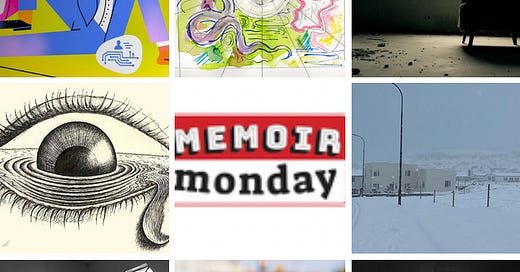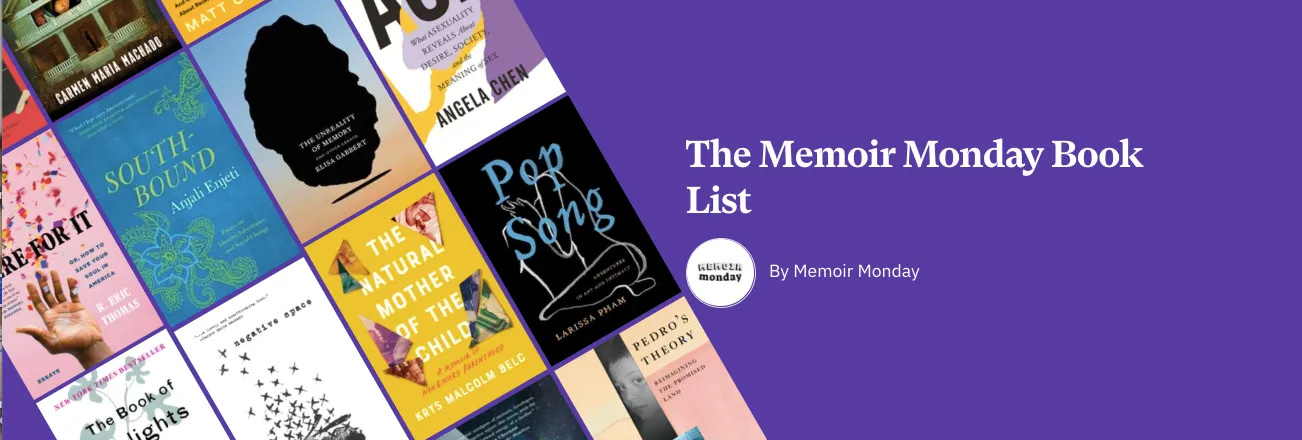Welcome to Memoir Monday—a weekly newsletter featuring the best personal essays from around the web, and a quarterly reading series, brought to you by Narratively, The Rumpus, Granta, Guernica, Oldster Magazine, Literary Hub, Orion Magazine, The Walrus—and this week, we are thrilled to welcome Electric Literature aboard!
In addition to the weekly curation, there are now original personal essays under the heading of First Person Singular. Last week I published “Crying, a Dissertation,” by
.
***Submissions for First Person Singular are now PAUSED. An overwhelming number of new submissions have recently come in. There are more essays in my inbox than I could publish in two years. And I’m too overwhelmed to keep bringing in more to read before I go through all those already in there, even with help from recently appointed contributing editor Katie Kosma.
*Going forward, there will be a Submittable account and specific submission periods, which I will announce here. You can find submissions guidelines and more on the “About” page, but, again, submissions are currently PAUSED.
In other news, recently I launched “The Lit Lab,” a new section of this newsletter dedicated to interviews and essays on craft and publishing. It is primarily for paid subscribers. Last Friday I published a video interview there with poet/memoirist
about her process in writing her debut memoir, You Could Make This Place Beautiful.

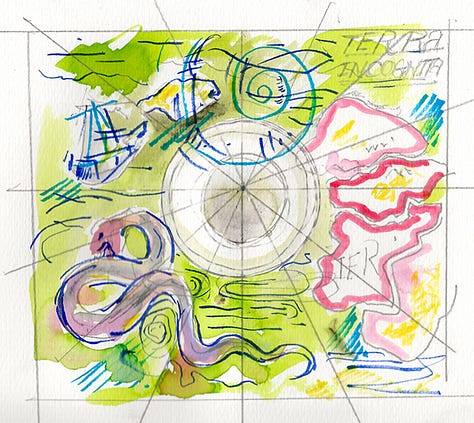

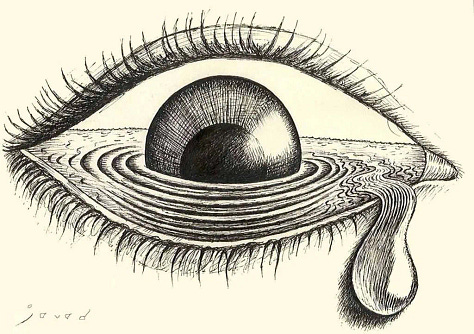




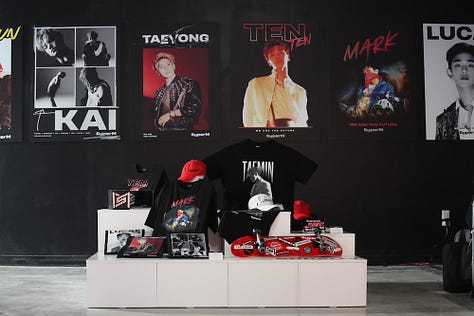
Essays from partner publications…
My High-Flying Life as a Corporate Spy Who Lied His Way to the Top
by Robert Kerbeck
“All that internal data about reporting structures and titles and top earners? One of the largest executive search firms in the world has secretly hired me to steal it. And those private cell phone numbers? My client is going to target the bank’s best moneymakers and try to poach them, securing their meaty portfolios as well. It’s late 2006, and Wall Street is bursting — year-end bonuses are projected to be 10 to 25 percent higher than last year’s, netting the top bankers and traders as much as $40 million apiece. All of which is to say, this seemingly innocuous phone call is taking place in a capitalist ecosystem defined by outrageous, unchecked excess and, yes, rampant deception. The world of corporate spying is shady but lucrative, and I am one of the best.”
Terra Incognita
by Alexandra Middleton
“21… 40… At 30, I am about to bisect the difference in age between my mother and mother’s mother when they gave birth. At 30, I am nearly the same age my mother was when she lost her mother. At 30, I am standing on the bridge between them, one terra to another.”
Losing My Hearing Showed Me a New Way to Write About the Self
by John Cotter
“The last and hardest job of writing Losing Music was to thread myself back in: What was I feeling while all of this was going on? Was I thwarted? Confused? Defiant? Certain I’d find a cure. Uncertain how to live when I couldn’t. Curious about how others lived with this kind of loss. Filled with recognition. Fascinated by the shapes of their lives.”
To That Silence, I Told Everything
by Xiao Yue Shan
“There are supposedly four hundred people living in the northern village of Skagaströnd, Iceland, but if all I had to go on was my own knowing, the number would dwindle to a finger-count. Along the coastline, the dice-toss of homes ranged silent and secretive. There were lamps in windows and linens ghosting on washing lines, hinting at bodies that read by yellow light or slept in navy cotton – but I hardly ever came across them. Though the lines and pathways that had brought me here required a great number of convergences and intersections, it was parallels that greeted me upon my arrival. The distance between the Iceland Sea and the mountain Spákonufell, the way the road mirrored perfectly the winding turns and curves of the earth, how the silence of the people never even touched the immense voices of the landscape. Day after day I walked the fifteen minutes between a kingfisher-blue house and a library that seemed to rest at the end of the world, along whistling water and dark rocks, past the diminutive structures, the upwards sweep of land behind them, the solid weather.”
He Loves You, He Loves You Not
by Rachel Saywitz
“That these gorgeous, impeccably made up humans could be so friendly, sweet, and humble to their fan bases was a balm for my stinging loneliness in a new city. With my favorite artists, I sometimes felt like I knew their deepest thoughts and desires solely through the way they spoke on reality programs, or the interactions they had with their fans both online and off. I often felt comforted by the fact that I lived so far away from them—it meant that before I went to sleep in the US, I could imagine them out and about in their busy lives in South Korea. There was something comforting in knowing how alive we were at the same time, how close we felt in our shared love for not only music, but each other.”
Steps
by Beth Kephart
“You’ve spent years breaking free from your worst habits, years of easing into pleasure, years shattering the bonds of unseemly discipline and rigor, and you were doing just fine, or at least you were doing better, until your husband’s niece, on holiday from London, joined you for a walk through Philadelphia.”
Losing My Faith and Finding Other Ways to Pray
by Iryn Tushabe
My mother's death had effectively divided my life into a “Before” and “After.” Before, prayer was possible. After, it was hopeless and absurd. But long after being disillusioned with God, I carried on going to church every Sunday. I was finding it difficult to detach completely. Following in my mother’s footsteps, I had believed in God since I was old enough to believe anything. What would I become minus that belief?
Crying, a Dissertation
by
“I realized that instead of having to separate tears and ("real") knowledge, maybe crying in front of paintings could tell me about relationships between kinds of knowing. But I had never cried in front of a painting, and I doubted that I could.”
Essays from around the web…
Unlearning the Ableist Writing Workshop
by Sarah Fawn Montgomery
“Disabled writers often receive pity and shame, suspicion and blame from the writing workshop. Unlike many of their colleagues, they are tasked with proving their stories are possible and also of value. They also face the reality that outside of the workshop their stories may not be given an audience at all.”
The Question of a Funeral
by Diane Kraynak
“Our social worker and child life specialists speak to the patients and parents, informing them of Kristen’s death and offering support. No one thinks to ask the nurses what we might need. They invent an exercise for us a few days later. Using the bulletin board at the staff end of the hallway, we are invited to write something about Kristen. Our sentiments are to be coded and anonymous for patient confidentiality. The attempt feels like a forced afterthought. I walk away, contributing nothing.”
With Flowers
by Kimaya Diggs
“We found out she was sick alongside azaleas and irises. The first surgery happened with sunflowers; the second with wild roses. Radiation lasted through snapdragons and hydrangeas; outlasted marigolds. She grew thin alongside slender bachelor’s buttons and fierce echinacea. Her hair fell out while the rose of Sharon flung its fleshy blooms against the grass.”
Grow
by Ari Koontz
“When I was seven, I made my first attempt at gardening in a weedy corner of our front yard, after a week of poring over A Child’s Guide to Magical Herbs and begging my mother to take me to the nursery down the street. That small triangular patch of dirt soon became home to spearmint and lemon balm and sage, wildhearted plants whose green leaves shot skyward and leapt the boundaries of my plot in just a few weeks. The summer air was perfumed with a sweet fragrance, and I was delighted by my unexpected success.”
A Field Guide to the Abeyance of Loss
by John Jacobson
“Every morning I wake up expecting life to be like it was before her illness…Abeyance descends from the Medieval French-Middle English word abeer, which means to gape at…Abeyance of loss as longing: She strides across the parking lot, black boots clicking. Her short black dress ripples. Her long dark hair tousles, as if she owns the wind. The way her legs and hips move astonish me.”
🚨Announcements:
📢 Lilly Dancyger also has a few new workshops on offer, plus manuscript and essay consultations. Lilly is a talented writer, editor, and teacher who will help you improve your work. Check out her offerings…
📢 Granta Writers’ Workshops has two new courses on offer: Nature Writing: Rewilding Language, and Writing Memoir: Unlocking Memory and Shaping Experience.
📢 Attention Publications and writers interested in having published essays considered for inclusion in our weekly curation:
By Thursday of each week, please send to memoirmonday@gmail.com:
The title of the essay and a link to it.
The name of the author, and the author’s Twitter handle.
A paragraph or a few lines from the piece that will most entice readers.
Because of data limits for many email platforms, going forward we will only include artwork from our partner publications. No need to send art.
*Please be advised, however, that we cannot accept all submissions, nor respond to the overwhelming number of emails received. Also, please note that we don’t accept author submissions from our partner publications.
You can also support Memoir Monday—and indie bookstores!—by browsing this Bookshop.org list of every book that’s been featured at the Memoir Monday reading series. It’s a great place to find some new titles to add to your TBR list!


